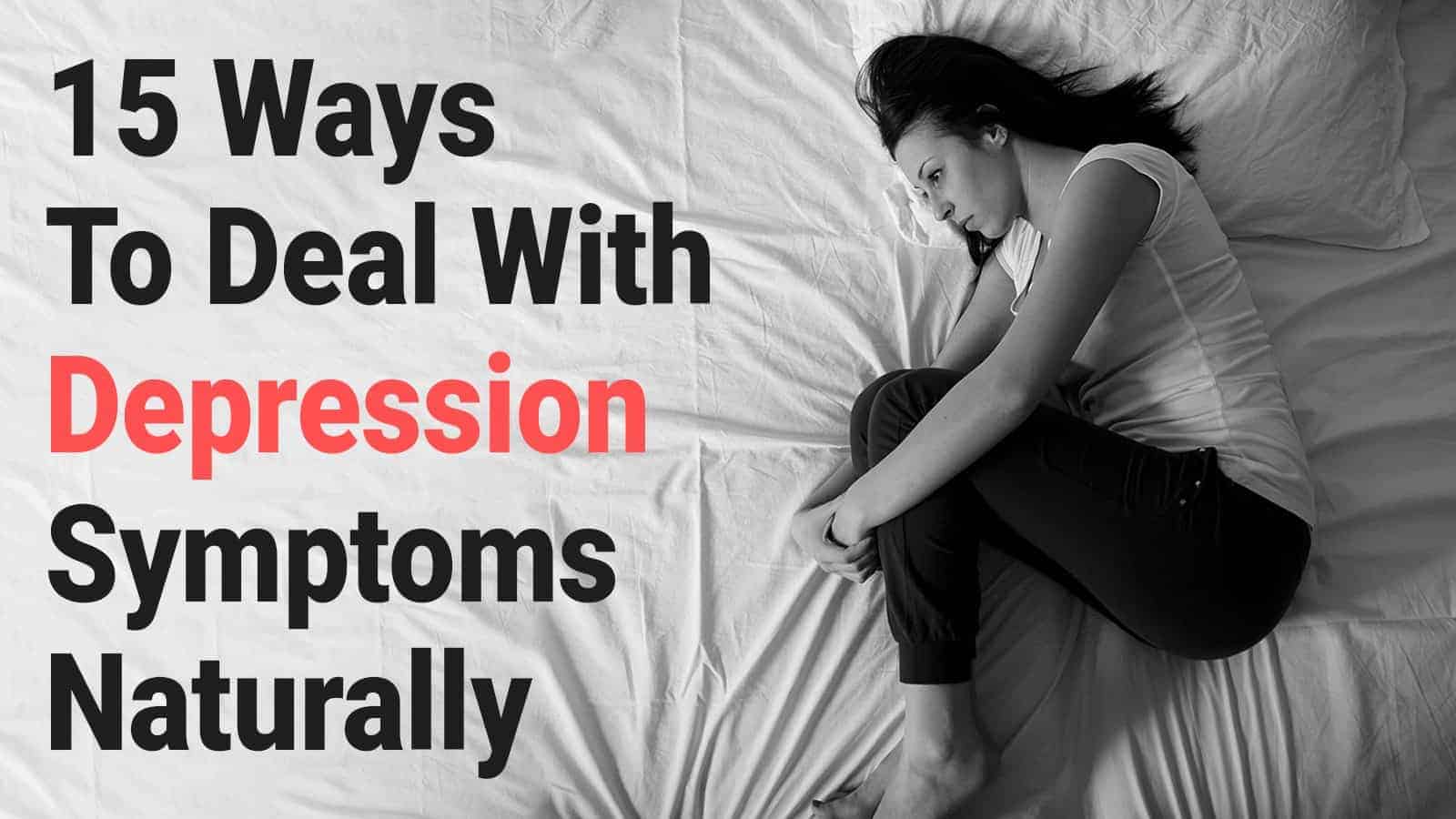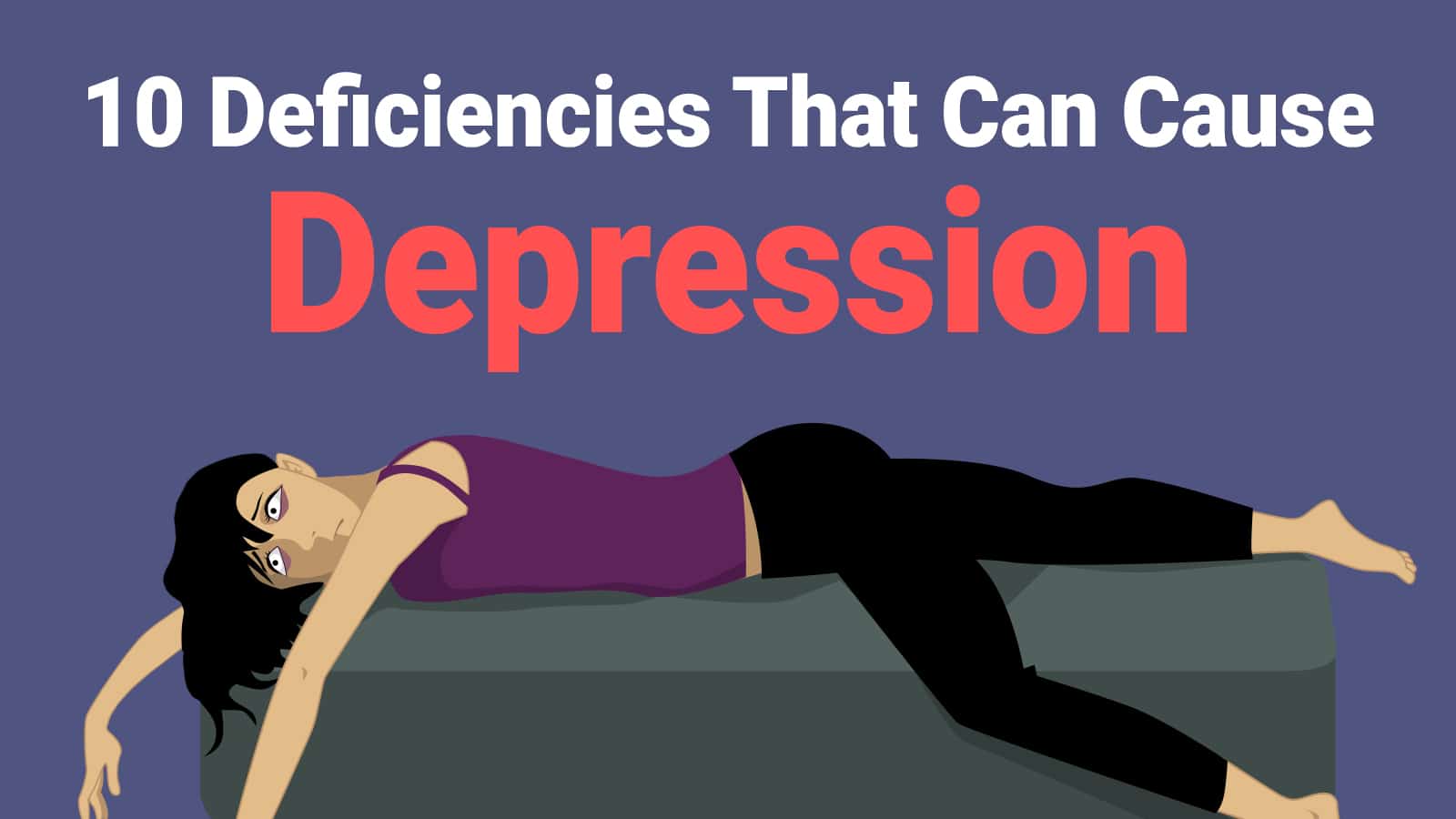It can be difficult to find ways to deal with depression. Depression is a serious problem that many people face every single day. The symptoms can be overwhelming and difficult to understand, but it is important to find ways to deal with it.
If depression isn’t dealt with, it can lead to problems with sleeping, eating, working, or maintaining relationships. It can make it difficult to think clearly or normally, making it that much harder to handle the symptoms. There are some self-care strategies to help with the problem, however.
Self-Care to Deal With Depression Symptoms
1. Get enough sleep.
Healthy amounts of sleep can help ease the symptoms of depression in more ways than one. Getting the right amount of sleep can raise energy levels, which helps with depression. Sleeping enough can also improve your mood, making it easier to deal with depression.
2. Eat healthy foods.
Sometimes, depression can lead to overeating or just eating more junk food than normal. This can cause our bodies and minds to feel even worse. Take care of yourself and your mind by choosing nutritious foods that will help you think more clearly. Nutritious foods will also raise your energy levels.
3. Get active.
You don’t have to go for a long run or start lifting weights, but you should be staying active. Doing light yoga or going for a leisurely walk can help ease the symptoms of depression.
4. Do something every day that makes you happy.
Create a list with all the things that make you happy. Now, make sure you do one of those activities every single day. Switch it up a little now and then, but always do something that you enjoy. It could be something simple and easy, or you could plan to set aside some time to do something even bigger.
5. Join a group of a club.
Being around other people who enjoy the same things you do can boost your mood and help you ease the symptoms of depression. Find a sports team, a crafting group, a book club, or any other kind of group.
6. Write in a journal.
Getting your thoughts down on paper can help ease the mind and deal with the negative feelings you’re having. It can even help you sort through those problems and determine the root of it. Sometimes, it just helps to vent in some way.
7. Practice deep breathing.
Deep breathing is especially helpful when dealing with depression. Not only does it allow you to take a small break and refocus your thoughts, but it also has other properties that help, as well. It can increase the circulation in your body, release endorphins that help boost your mood, and it relaxes your muscles.
8. Follow a relaxing, stress-free bedtime routine.
Getting enough sleep is a huge part of dealing with depression. Without the right amount of sleep, stress levels will be higher and you will be more emotional. With this being the case, it is important to find a relaxing way to wind down each night in order to help yourself fall asleep on time. Pick a time to lay back and relax by reading a book. Once that time comes, you should stop doing all work-related activities, and turn off your cell phone. By relaxing before bed and allowing your mind to rest, you will be able to fall asleep easier.
9. Take a bubble bath.
Take a hot bath with relaxing essential oils or bubble bath in it. Do whatever it is that you need to do to relax. You could light candles, turn on calming music, or read a book. By taking a bath, you will help your muscles relax, which could help deal with depression.
10. Reach out.
When you are having a hard time, your friends and family will be able to help you deal with the depression and find the cause of it. Asking for help can be so hard, but it is an important part of self-care. Your loved ones love you and want to help you, so once you get past the hard part of asking, you will be glad that you reached out.
Your loved ones only want what is best for you, so you should never be ashamed or feel guilty for asking them for help. Even just venting to them and telling them about the way you are feeling may help.
11. Avoid depression triggers.
We all have those people, things, or situations that make our depression worse. An important aspect of self-care when it comes to helping with depression is to avoid those triggers whenever possible. If there is a person who triggers those negative feelings in you, it is probably time to cut that person out of your life or, at the very list, limit your time with them. If there is a food or a book or any other object that triggers your depression, get rid of it. Do the same with places and situations and cut them out of your life or limit your time there.
12. Find something productive to do in your home every day.
This could be organizing your desk, cleaning your bedroom, or getting the laundry all caught up. Pick something that will make a difference to you and get it done. No matter how small the task is, it will help you feel less depressed. Being productive tends to bring good feelings, and knowing you made your own space more usable will make the good feelings even stronger. On top of that, the task will keep your mind busy for at least a little while.
13. Talk to your doctor.
Telling your doctor about your symptoms can help alleviate the problems because your doctor will be able to suggest a course of action for you. Sometimes, a doctor may prescribe you medication to help with depression. While many people think negatively about medication, it can make all the difference in your self-care plan. It can help you think more clearly and understand what actually triggers your depression.
14. Have good personal hygiene.
When you are depressed, it can be hard to want to get up and take a shower every day. It may seem easier to stay in your pajamas and lounge around all day. To help ease the depression symptoms, however, it is better to practice good personal hygiene.
When you wake up in the morning, force yourself to get out of bed and take a shower. Brush your teeth afterward, and put on clean clothes. This process will help distract your mind from the negative thoughts for a while, and getting around and dressed may help you feel a little better.
15. Get outside.
Sit outside and read a book or go for a leisurely walk. You could just sit outside and look at the beauty around you, or you can just practice deep breathing. Breathing in the fresh air will help clear your mind and help you think more clearly. Feeling the sunshine on your body will also help ease the symptoms of depression.
Symptoms of Depression
If you haven’t been diagnosed with depression but think that you suffer from it, it may be helpful to know what the symptoms are. Knowing the symptoms and recognizing them when they are affecting you is just one step to solving the problem and dealing with the depression. Even if you are able to self-diagnose your depression, it is still smart to meet with your doctor so you can be formally diagnosed. More options are available to you when a doctor has diagnosed your mental illness.
Usually, one person will not suffer from every symptom. When a symptom is present, it could be a sign of depression if the symptom gets worse or does not go away on its own.
Common symptoms of depression include:
- Feeling sad or empty
- Feelings of anxiousness
- Feeling helpless or worthless
- Feeling guilty when there is no reason to feel that way
- Feeling hopeless and like things will never get better
- Feeling irritable
- Lack of interest in activities
- Loss of energy
- Difficulty concentrating
- Forgetfulness
- Having a hard time making decisions
- Sleeping too much or not enough
- Eating too much or not enough
- Frequent headaches
- Thoughts of suicide or death
Some of these symptoms are not normally associated with depression, which leads to the symptom being ignored. In order to adequately deal with depression, you must know what you are dealing with.
It is important to note, however, that having one or more of these symptoms does not always mean you have depression. Something else may be the issue, which is another reason it is important to get a professional diagnosis from a doctor.
Final Thoughts on How to Deal With Depression
Depression affects many people every single day. In order to deal with depression, you should indulge in some self-care strategies. Even the simplest forms of self-care can greatly help relieve the symptoms.
Knowing the symptoms is helpful, too, so that you know which depression symptoms are affecting you the most. Seek help from a doctor in order to know for sure what you are dealing with and the severity of the problem.


















